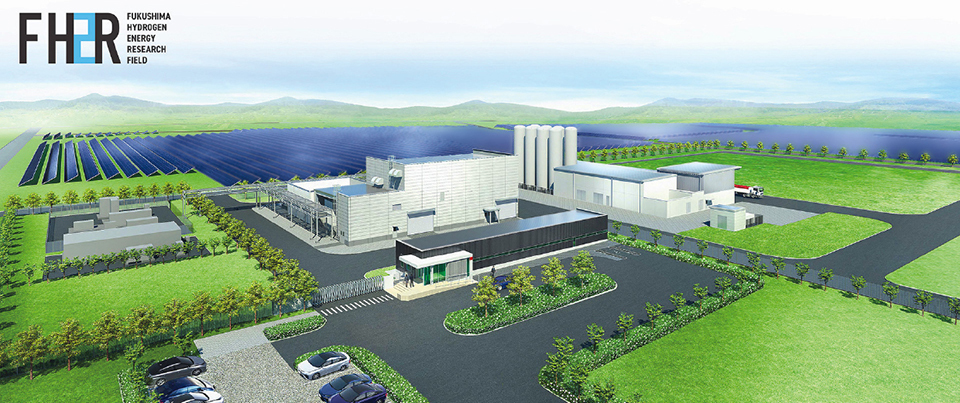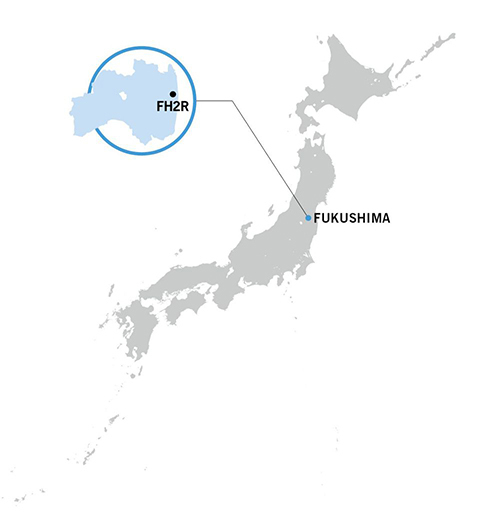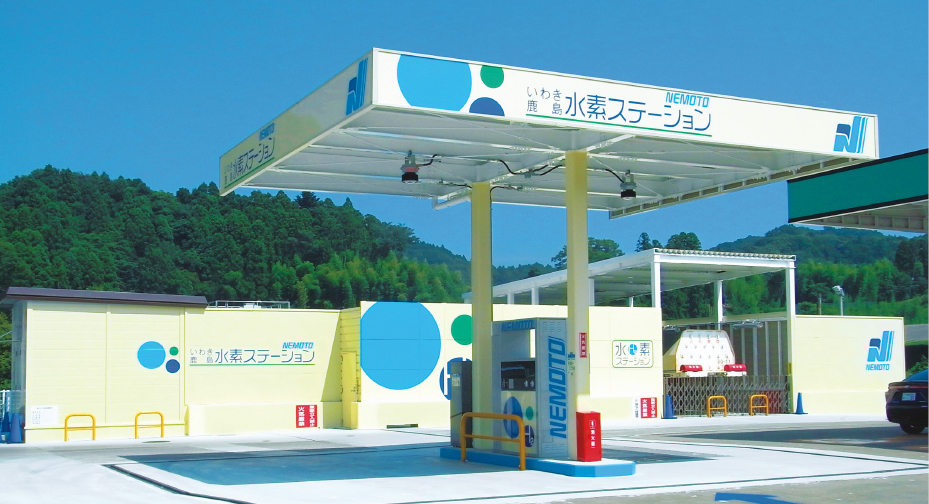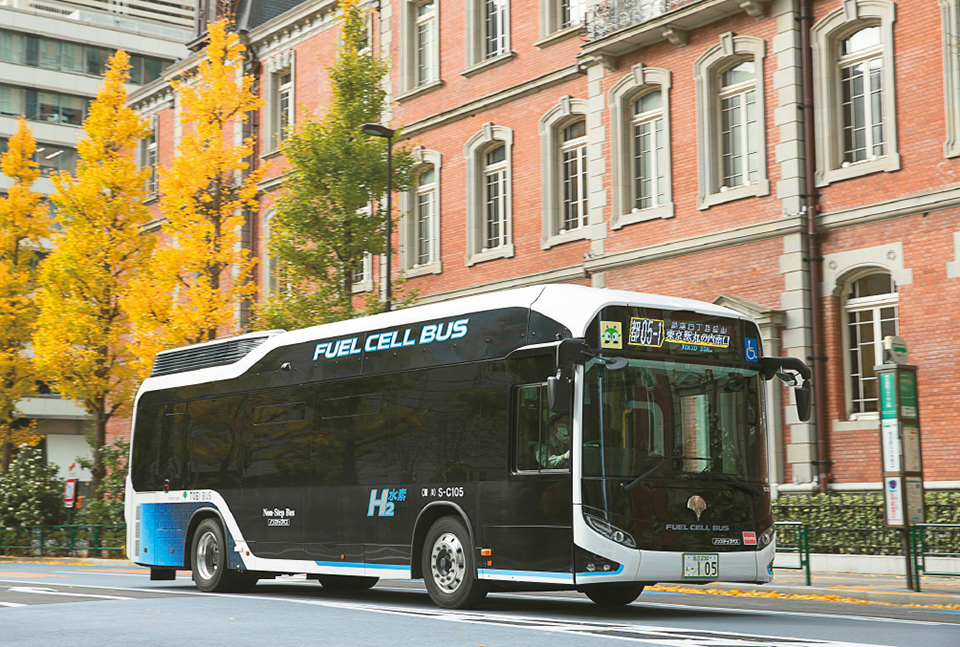Hydrogen, a source of next-generation clean energy, holds the key to solving the problems of carbon reduction and energy supply. In Fukushima Prefecture, where the restoration from the devastating earthquake continues to gain momentum, the Fukushima Hydrogen Energy Research Field will be the world’s largest-scale hydrogen production facility upon its completion in the spring of 2020.

Conceptual drawing of the completed Fukushima Hydrogen Energy Research Field (FH2R), a major step towards a hydrogen-powered society.

As the world switches over to clean energy, hydrogen is drawing ever more attention. Unlike petroleum and coal, it can be used without generating CO2. It can also be produced from a variety of resources. When renewable energy resources, such as solar power, wind power, and biomass are used, the entire process is almost entirely carbon-free, from production to utilization. In order to achieve the Sustainable Development Goals (SDGs) of climate change mitigation and universal access to energy, hydrogen is indispensable.
Looking towards the realization of a hydrogen society, Japan already leads the world with technological solutions, of which the introduction of the world’s first marketable fuel cell vehicle is a good example. Japan is also showing leadership in other ways, such as the “Basic Hydrogen Strategy,” established in 2017 as an action plan to realize a hydrogen-powered society, and by hosting the Hydrogen Energy Ministerial Meeting, which in 2018 was the world’s first cabinet-level discussion devoted to the issue.

A hydrogen station in Iwaki City, Fukushima Prefecture. There are 109 hydrogen stations around the country at present.

Panasonic plans to commercialize a pure hydrogen fuel cell in about 2021. The new product is even cleaner because, without using city gas, it generates electricity directly from hydrogen supplied from hydrogen stations. Anticipated uses include factories, commercial facilities, and condominiums.
An important role is being played in the strategy by the Fukushima Hydrogen Energy Research Field (FH2R), which will be completed next spring. Equipped with a 10,000kW-class hydrogen production facility, and utilizing renewable energy sources, such as electricity generated by solar panels arrayed around it, the facility will be able to produce up to several hundred tons of hydrogen a year.
Achieving a hydrogen society requires promoting a total integration of “making,” “storing,” and “using” hydrogen. A particularly critical issue is responding to fluctuations in electrical power when the hydrogen is made from renewable energy sources that vary according to the weather and other factors. This issue will be addressed by the verification tests at FH2R, which, as the world’s largest-scale facility for producing hydrogen from renewable sources, will help to establish a total management system that embodies optimizable operating procedures.
The significance of the facility is described in the following terms by Eiji Ohira of the New Energy and Industrial Technology Development Organization (NEDO), the organizer of the project, “FH2R is presently the largest research facility in the world. The experience and data acquired through operating, maintaining, and otherwise managing the facility will be invaluable for commercial implementations in the future.”

With the increasing number of hydrogen stations, fuel cell automobiles, buses, and other vehicles are becoming more common. Plans are being made to have at least 100 fuel cell buses running in Tokyo and other cities by 2020.
The third step of “using” is also making progress, as hydrogen is introduced into the supply chain to replace fossil fuels previously used in Japan. A fuel cell for the home known as Ene-Farm is already becoming a normal part of life. Ever since the roll-out of Mirai, the world's first fuel cell car, hydrogen fueling stations have been spreading through the country, and fuel cell buses are now operating regularly, particularly in Tokyo. Plans are being studied to utilize hydrogen energy in practical ways, such as at the residential villages for the Olympic and Paralympic Games Tokyo 2020 to be held next year. The range for future implementation is widening to include applications such as electric vehicles, ships, and aircraft.
Hydrogen, a clean fuel that can be easily stored and transported, gives flexibility and new possibilities to society beyond what was previously available with conventional energy sources. With humanity facing so many problems in need of solutions, great hopes are being placed on the switch to hydrogen.





























